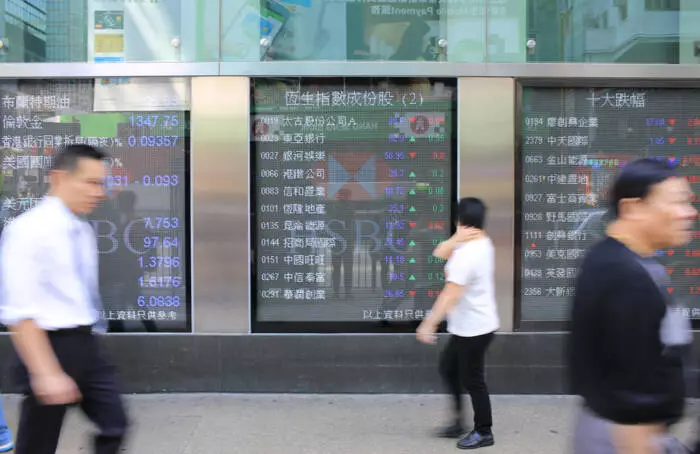In the week leading up to November 15, the Hang Seng Index experienced significant declines, dropping 6.28% to settle at 19,426. This downturn can be attributed primarily to a surge in pessimism surrounding a potential Federal Reserve rate cut scheduled for December, causing investors to reassess their positions amid bleak economic signals emanating from China. The ripple effects of Donald Trump’s renewed tariff threats only exacerbated the situation, deepening concerns regarding trade relations and economic stability.
The Hang Seng Mainland Properties Index witnessed the most severe impact, plummeting by 10.85%, reflecting the vulnerability of real estate amid increasing economic scrutiny. Similarly, the Hang Seng Tech Index (HSTECH) fell by 7.29%. Prominent tech firms like Alibaba and Baidu saw substantial losses, with declines of 7.53% and 7.23%, respectively. Tencent, another major player, also experienced a 5.21% drop, although its better-than-expected earnings somewhat cushioned the blow, highlighting the mixed nature of the market sentiment.
On the mainland, the broader trend was similarly disheartening. The CSI 300 and the Shanghai Composite dropped by 3.29% and 3.52%, respectively, underscoring a consistent theme of economic fear characterized by uncertainties associated with US tariff policy. With commodity markets following suit, iron ore prices fell by 3.26%, driven by waning demand expectations from China in the face of trade tensions.
Further complicating the economic landscape, gold prices saw a notable decline of 4.51%. This dip was largely influenced by faltering expectations surrounding a December Fed rate cut, as investors recalibrated their outlook amid mixed economic data. Across the Pacific, the ASX 200 index slightly declined by 0.12% after a previous week of stronger performance. This downturn was spurred by falling iron ore prices, as mining giants BHP Group and Rio Tinto suffered substantial declines of 7.67% and 7.75%, respectively.
Despite these challenges, the technology sector in Australia demonstrated resilience. The S&P/ASX All Technology Index climbed by 3.89%, buoyed by strong performances from banking stocks, particularly the Commercial Bank of Australia, which reported steady growth in its loan book and capitalized on a market looking for stability.
Meanwhile, the Nikkei Index mirrored these trends, recording a 2.17% decrease after a previous gain of 3.80%. The strengthening of the USD/JPY exchange rate provided limited support as investors remained primarily focused on the anticipated trajectory of Fed policies. Companies such as Tokyo Electron and SoftBank Group experienced declines of 4.09% and 4.78%, respectively, reflecting broader market apprehensions.
A multitude of factors—ranging from political dynamics, economic indicators, and sector performance—continue to shape market sentiments. Upcoming events, including monetary policy decisions from the People’s Bank of China (PBoC) and the Reserve Bank of Australia (RBA), as well as vital data releases from the US, are set to play crucial roles in dictating future market moves. Investors will need to remain vigilant, as the interplay between global economic dynamics and local market responses will likely remain complex and multifaceted.


Leave a Reply